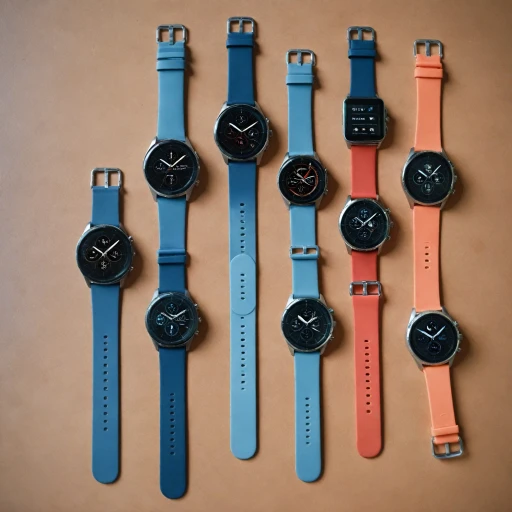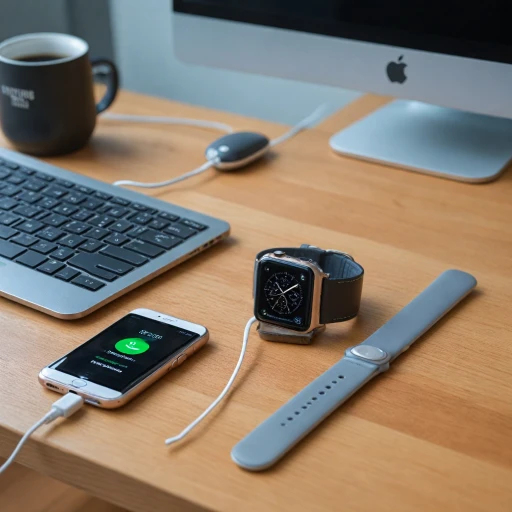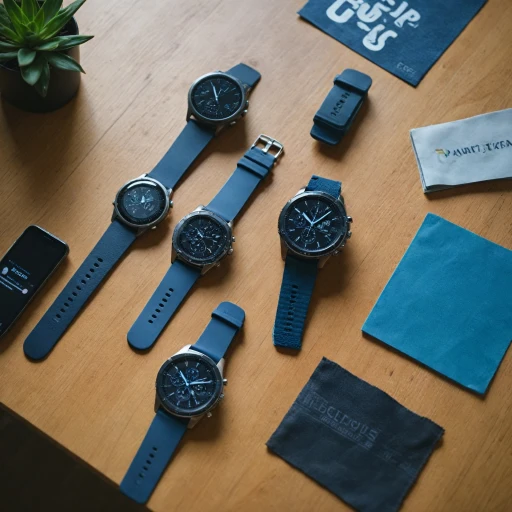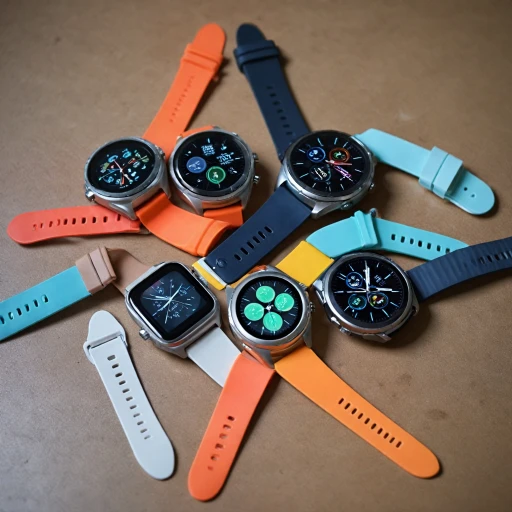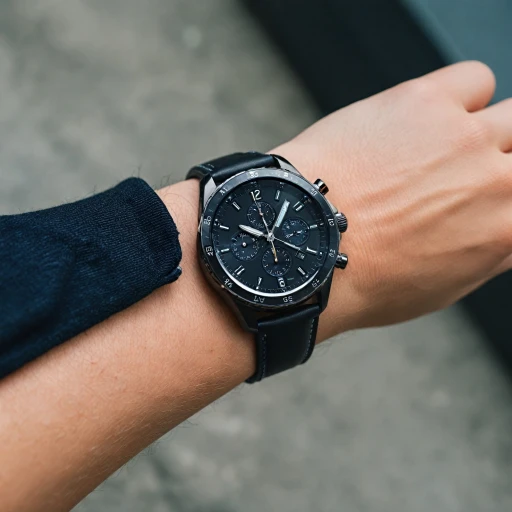
Understanding Fitness Trackers
Introduction to the World of Fitness Watches
Fitness trackers have transformed the way we approach our health and wellness journeys. These devices, often taking the form of a band or a watch, provide an array of features designed to support fitness goals and track essential health metrics. Whether you're using a Fitbit, Garmin watch, or a Samsung Galaxy watch, each tracker offers a unique blend of functions. Understanding these devices can help you choose the best fitness bands for your active lifestyle.
Diverse Functions for Comprehensive Health Monitoring
Fitness trackers have evolved beyond mere step counters. Modern trackers, such as the Apple Watch or Whoop band, offer advanced heart rate monitoring, sleep tracking, and even blood oxygen level readings. Some devices, like the Garmin Venu, include built-in GPS for detailed workout maps, while others emphasize water resistance, like those with 5 ATM ratings, making them suitable for swimmers. These features, combined with data tracking capabilities, provide a holistic view of your health.
Navigating the World of Fitness Tracker Brands
With various brands available, it might be challenging to identify the right fitness tracker. Well-known brands such as Fitbit Charge and Amazfit Band offer competitive options. A reliable fitness tracker often centers around extended battery life, robust build, and reliable fitness tracking data. When choosing your device, consider how these elements align with your lifestyle and fitness goals.
Key Features to Look for in Fitness Trackers
Essential Elements to Consider for Your Fitness Tracker
When you're diving into the realm of fitness trackers, it's crucial to understand the features that can help you achieve your wellness goals. From a basic fitbit to the more advanced garmin venu, here's what you should look for when choosing your fitness companion.- Heart Rate Monitoring: A core aspect of fitness tracking is the ability to monitor your heart rate. Whether it's a whoop band or an apple watch, having accurate heart rate tracking helps in understanding your cardiovascular health and optimizing workouts.
- Sleep Tracking: Getting a good night's sleep is crucial for health. Many fitness trackers, like the fitbit charge, include features for sleep monitoring, providing insights on sleep patterns and efficiency, to improve overall health.
- Battery Life: A watch with a good battery life ensures you can track your fitness activities without frequent recharges. Whether it's the samsung galaxy or an amazfit band, a longer battery life means more days of hassle-free tracking.
- Water Resistance: For swimmers and those who want to monitor their fitness exposure to water, a resistance atm rating indicates how well the device can withstand water pressure. It’s an essential feature for those engaging in water-based activities.
- Built-in GPS: For those who enjoy exploring outdoors, built GPS functionalities provide real-time location tracking, helping runners and cyclists navigate routes while tracking distance and speed.
- Health Data Insight: Many trackers, from the apple watch to the oura ring, offer insights into your health stats, such as step count, calories burned, and even blood oxygen levels, aiding in a comprehensive overview of your "fitness" status.
Benefits of Using Fitness Trackers
Reaping the Rewards of Fitness Tracking
Embracing the world of fitness trackers brings a treasure trove of benefits for health enthusiasts and casual users alike. From advanced features like sleep tracking and heart rate monitoring to water-resistance capabilities, these gadgets are worth considering.
- Comprehensive Health Monitoring: Devices like Garmin Venu and Fitbit Charge excel with their ability to track heart rate, blood oxygen levels, and more, offering a holistic view of your health.
- Motivation to Stay Active: Fitness trackers such as the Apple Watch and Samsung Galaxy Watch provide reminders and feedback that can motivate users to meet their health goals.
- Sleep Analysis: Sleep tracking not only helps in understanding sleep patterns but can lead to improved sleep quality. The Oura Ring and Whoop Band are especially known for their sleep insights.
- Convenience and Portability: With options like the Amazfit Band, users get the convenience of a lightweight device that can accompany them anywhere.
- Long Battery Life: The best fitness gadgets now offer up to several life days of battery, so you can focus on your workouts rather than constant charging.
- Built-in GPS: The integration of GPS (as seen in the Galaxy Watch) allows for accurate data tracking while engaging in outdoor activities, eliminating the need for a secondary device.
The best fitness tracker for you will depend on your lifestyle and specific needs, but the advantages of tracking your health parameters are undeniable. Ensuring that your tracker is set up correctly is key, so consider reading about successful pairing of your Apple Watch to make the most out of your device.
Continue exploring other sections to learn about features to look for and insights into the ever-evolving future of these dynamic trackers.
Challenges and Limitations of Fitness Trackers
Overcoming the Hurdles of Fitness Trackers
Fitness trackers have become trusted allies in the quest for better health, offering features like heart rate monitoring, sleep tracking, and built-in GPS systems. However, like any technology, they face several challenges, which users should consider before choosing their best fitness watch.- Accuracy Limitations: While many fitness trackers, like the Garmin Venu and the Fitbit Charge, aim for precision, discrepancies in heart rate or sleep data can occur. Environmental factors, sensor placements, and even skin type can lead to variations in data accuracy. It's essential to be aware that these devices provide estimations rather than definitive health metrics.
- Battery Life Concerns: Depending on features and usage, battery life can range significantly. For instance, devices with continuous GPS tracking or advanced sleep monitoring might see reduced life days compared to more basic models. As such, cultivating an understanding of your daily needs can help manage expectations.
- Water Resistance Variability: Not all trackers offer the same level of water resistance. Devices like the Samsung Galaxy Watch and certain Garmin models boast high resistance ATM ratings, making them ideal for swimming or rigorous gym workouts. Others might only resist occasional splashes, impacting their usability in diverse fitness environments.
- Data Privacy and Security: Fitness trackers collect a wealth of personal health data. Brands like Apple and Fitbit prioritize user privacy, yet potential data breaches remain a concern. Users are encouraged to review privacy policies and choose trackers that align with their comfort level regarding data management.
- User Experience and Compatibility: Compatibility issues with smartphones or other fitness apps can deter those seeking seamless integration. Brands like Apple Watch and Galaxy Watch series emphasize compatibility with their ecosystems, providing a more cohesive user experience.
Choosing the Right Fitness Tracker for You
Finding the Fitness Tracker that Suits You Best
When diving into the realm of fitness trackers, it's essential to consider what will serve your personal health and wellness goals most effectively. From tracking your heart rate during workouts to monitoring your sleep patterns, the right tracker can be a helpful ally in your fitness journey. Here are some factors to ponder:- Activity Levels and Goals: If you're an avid runner or cyclist, you might benefit from a tracker with built-in GPS like the Garmin Venu or the Fitbit Charge. For those more focused on sleep improvements and blood oxygen levels, devices like the Oura Ring offer specialized features.
- Health Monitoring Features: Depending on whether you're interested in keeping an eye on your heart rate, sleep tracking, or more advanced metrics like VO2 max, exploring trackers from brands such as Apple or Whoop might be beneficial.
- Battery Life: For those who dislike the hassle of frequent charging, opting for a device with impressive battery life like the Amazfit Band or certain Galaxy Watch models would be advantageous.
- Ease of Use and Comfort: Think about how the device feels on your wrist. A band that fits comfortably and suits your style can greatly enhance the user experience. Consider factors like water resistance, especially if your routine includes swimming.
- Budget: High-end models such as the Apple Watch might offer extensive features, but there are budget-friendly alternatives with reasonable tracking capabilities, making it easier to find the best fitness tracker that fits your financial plan.






